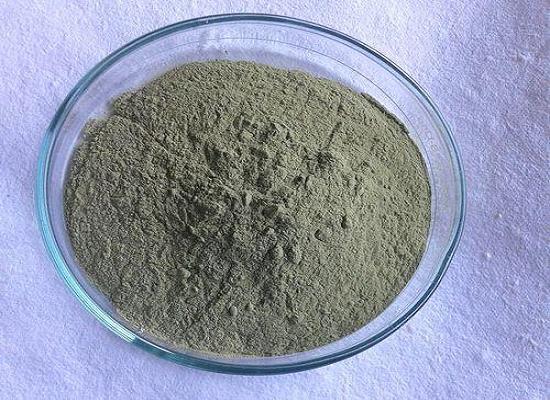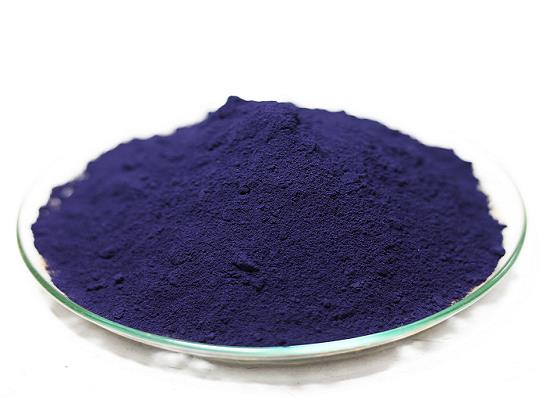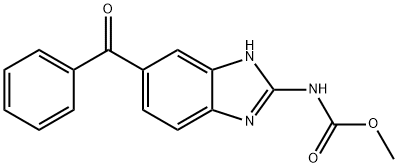Mebendazole: pharmacokinetics, applications and side effects
Aug 1,2023
General Description
Mebendazole is an anthelmintic drug used to treat parasitic infections. Its poor bioavailability and extensive metabolism limit its systemic circulation. The drug can cross the blood-brain barrier, making it useful for treating cerebral echinococcosis. In oncology, mebendazole shows promise as a repurposed drug, inhibiting tumor progression and synergizing with other therapies. Common side effects include gastrointestinal symptoms, while rare but serious effects include peripheral nerve damage, bone marrow suppression, and liver toxicity. Regular blood tests are recommended during treatment. Mebendazole is commonly prescribed for intestinal nematode and tapeworm infections, as well as other tissue parasite infections.
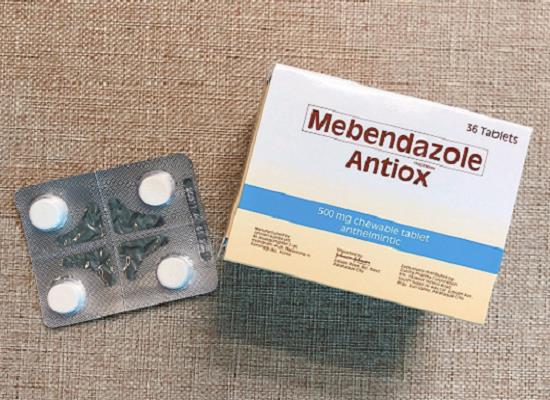
Figure 1. Tablets of mebendazole
Pharmacokinetics
Mebendazole has poor bioavailability, with only about 17-20% of the dose reaching the systemic circulation after oral administration. This is due to incomplete absorption and extensive first-pass metabolism. The drug exhibits inter-individual variation in pharmacokinetics. Chronic therapy increases maximum serum concentration (Cmax) and area under the curve (AUC), suggesting some degree of enterohepatic circulation. Concomitant intake of fatty foods enhances its systemic bioavailability. Mebendazole is mainly bound to plasma proteins and is primarily cleared through bile and feces, with only a small percentage excreted in urine. It has the ability to cross the blood-brain barrier, which is clinically relevant for treating cerebral echinococcosis. In vivo studies on different polymorphs of mebendazole showed good penetration into brain tissue. The drug acts by binding to the β-subunit of helminthic tubulin, inhibiting dimerization with α-tubulin and affecting cellular structures, intracellular transport, and glucose absorption. 1
Applications
Treatment of tumor
Mebendazole has shown potential as a repurposed drug in oncology, particularly in the treatment of refractory tumor cells and cancer stem cells that are resistant to approved therapies. It possesses favorable characteristics for repurposing, including a well-established toxicity profile, pharmacokinetics that allow therapeutic concentrations at the site of disease, ease of administration, and affordability. In vitro studies have indicated that mebendazole can inhibit various factors involved in tumor progression, such as tubulin polymerization, angiogenesis, pro-survival pathways, matrix metalloproteinases, and multi-drug resistance protein transporters. Mebendazole not only exhibits direct cytotoxic activity but also synergizes with radiation and different chemotherapeutic agents while stimulating an antitumoral immune response. In animal studies, mebendazole as a single agent or in combination with chemotherapy has demonstrated reduced tumor growth, decreased metastatic spread, and improved survival. Further research is needed to confirm its clinical anti-cancer activity and safety in combination with other drugs in clinical settings. 2
Treatment of parasitic infections
Mebendazole, along with albendazole, is a benzimidazole broad-spectrum anthelmintic used for the treatment of parasitic infections. These drugs work by blocking the microtubule systems in both parasites and mammalian cells, leading to inhibition of glucose uptake and transport and ultimately causing cell death. They have ovicidal, larvicidal, and vermicidal effects on parasites and tumoricidal effects on hosts. Albendazole and mebendazole are commonly prescribed for the treatment of intestinal nematode infections like ascariasis, hookworm infections, trichuriasis, strongyloidiasis, and enterobiasis. They can also be used for intestinal tapeworm infections such as taeniases and hymenolepiasis. Additionally, these drugs have shown therapeutic effects against tissue nematode/cestode infections (visceral, ocular, neural, and cutaneous larva migrans, anisakiasis, trichinosis, hepatic and intestinal capillariasis, angiostrongyliasis, gnathostomiasis, gongylonemiasis, thelaziasis, dracunculiasis, cerebral and subcutaneous cysticercosis, and echinococcosis). 3
Side effect
It is important to note that mebendazole may cause a variety of side effects in some individuals. These side effects include gastrointestinal symptoms such as abdominal pain, nausea, and diarrhea. Additionally, mebendazole may cause peripheral nerve damage, leading to numbness, tingling, and muscle weakness. Rare but more serious side effects include bone marrow suppression and liver toxicity. It is recommended that individuals taking mebendazole regularly undergo blood tests to monitor their bone marrow function and liver function. If any side effects become intolerable or severe, individuals should discontinue use and seek medical attention promptly. 4
Reference
1. Guerini AE, Triggiani L, Maddalo M, Bonù ML, Frassine F, Baiguini A, Alghisi A, Tomasini D, Borghetti P, Pasinetti N, Bresciani R, Magrini SM, Buglione M. Mebendazole as a Candidate for Drug Repurposing in Oncology: An Extensive Review of Current Literature. Cancers (Basel), 2019, 11(9):1284.
2. Meco D, Attinà G, Mastrangelo S, Navarra P, Ruggiero A. Emerging Perspectives on the Antiparasitic Mebendazole as a Repurposed Drug for the Treatment of Brain Cancers. Int J Mol Sci, 2023, 24(2):1334.
3. Chai JY, Jung BK, Hong SJ. Albendazole and Mebendazole as Anti-Parasitic and Anti-Cancer Agents: an Update. Korean J Parasitol, 2021, 59(3):189-225.
4. Granados CE, Reveiz L, Uribe LG, Criollo CP. Drugs for treating giardiasis. Cochrane Database Syst Rev, 2012, 12(12):CD007787.
- Related articles
- Related Qustion
- Mebendazole Shows Promising Potential as a Therapeutic Agent for Brain Cancer Jan 24, 2024
Mebendazole shows promise in inhibiting brain tumor growth and enhancing conventional therapies in preclinical and clinical studies.
- What is Mebendazole? Dec 27, 2019
Mebendazole (MBZ) came into use in 1971, after it was developed by Janssen Pharmaceutica in Belgium.
Mebendazole
31431-39-7You may like
- Mebendazole
-

- $0.00 / 1KG
- 2025-01-20
- CAS:31431-39-7
- Min. Order: 1KG
- Purity: 98.0%
- Supply Ability: 2ton/month
- Mebendazole
-
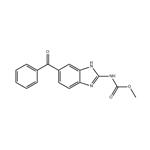
- $0.00 / 1kg
- 2025-01-16
- CAS:31431-39-7
- Min. Order: 1kg
- Purity: 98.0%
- Supply Ability: 1tons
- Mebendazole
-
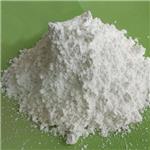
- $0.00 / 25kg
- 2025-01-16
- CAS:31431-39-7
- Min. Order: 1kg
- Purity: 98%
- Supply Ability: 1000kgs




